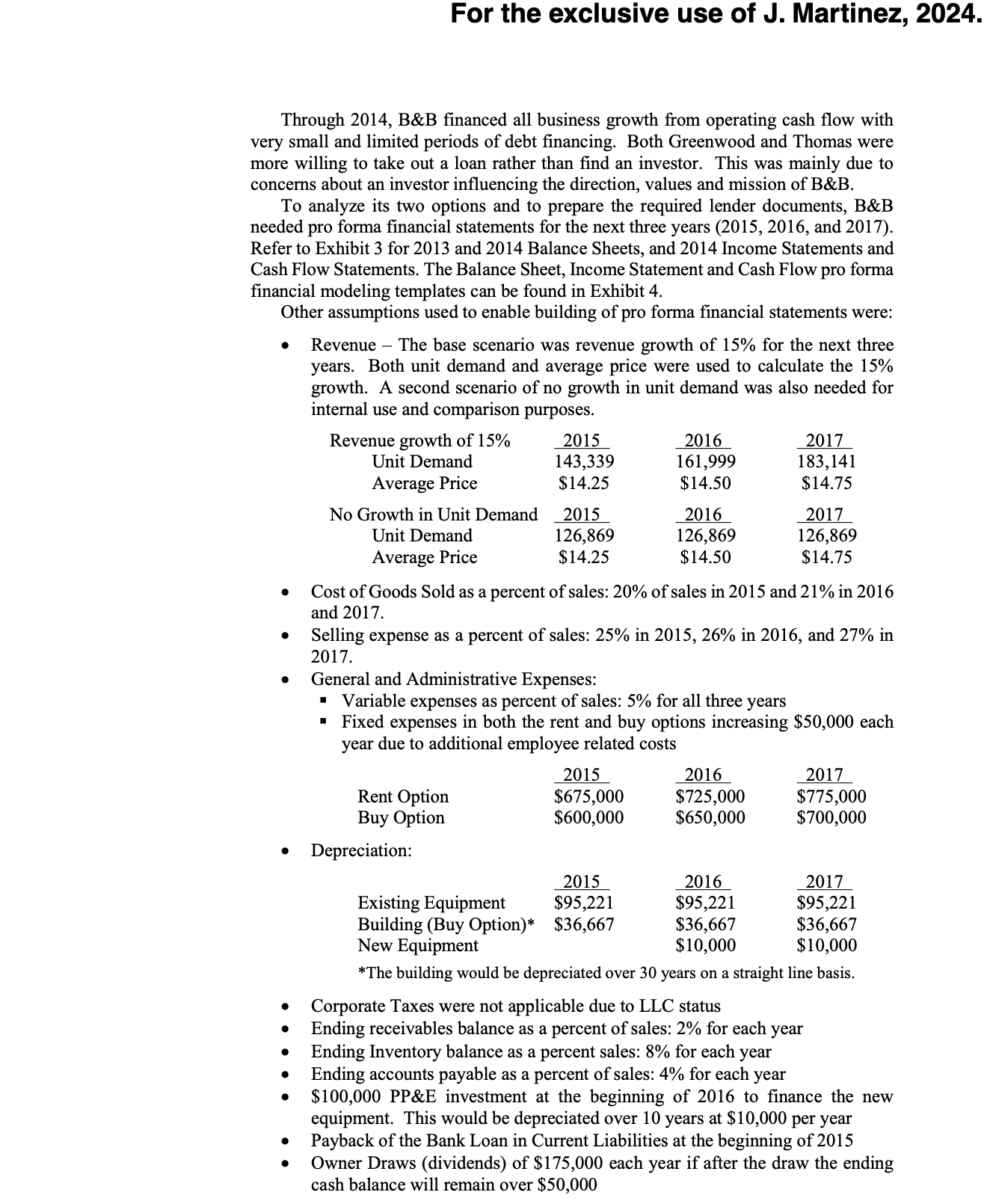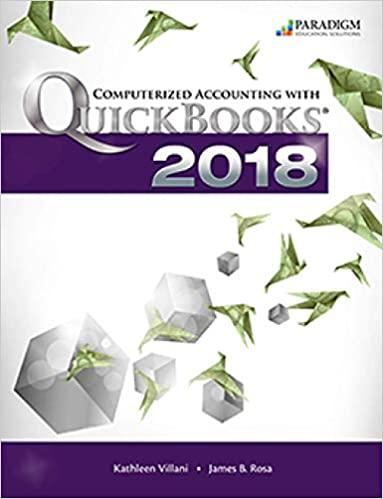Answered step by step
Verified Expert Solution
Question
1 Approved Answer
From the case booklet, read the Bubble & Bee case, and create the four forecasts listed in the case. These are based on whether you
From the case booklet, read the Bubble & Bee case, and create the four forecasts listed in the case. These are based on whether you have sales growth or not, and whether you buy or build extra space for expansion. Then calculate the ratios listed in the final page to analyze which decision would be preferable. When calculating the ratios, you do not need to take the average for the balance sheet items as listed in Exhibit but can just calculate them with the formulas we used in class.Consequently, in the past few years less effort was focused on building and
maintaining the wholesale accounts. This in part resulted in a slowing of revenue growth
in Alarmed at what this could mean for the future of the company, new and
focused attention was given to expanding and building their online presence.
Greenwood and Thomas were confident that revenue growth of per year would be
achievable over the next three years with the renewed focus on the online business.
The expectation of revenue growth would require the expansion of operating
facilities. Operations were located in two rented square foot facilities. Expansion
to a square feet facility was estimated to meet anticipated growth over the next
three to five years. Two possibilities considered for expansion were renting additional
space or buying a square foot building to house all B&B operating and office
requirements. The finished building would cost roughly $
Financial considerations of the two options included:
Additional Rental Space Rent an additional square foot facility. This
would add $ of annual rent cost to the existing annual rent cost of
$
Building Purchase Borrow $ for the building for years at a all
fee included interest rate. Greenwood as a woman entrepreneur could apply for
an SBA loan at a fixed rate of with a loan to value ratio. This loan
would require personal guarantees on the entire $ amount for both
Greenwood and Thomas. The difference between the building cost and loan
amount would be paid from operating cash in For financial modeling
purposes, the annualized total loan payments principal and interest would be
$ Interest and principal payments would be as follows:Through B&B financed all business growth from operating cash flow with
very small and limited periods of debt financing. Both Greenwood and Thomas were
more willing to take out a loan rather than find an investor. This was mainly due to
concerns about an investor influencing the direction, values and mission of &
To analyze its two options and to prepare the required lender documents, B&B
needed pro forma financial statements for the next three years and
Refer to Exhibit for and Balance Sheets, and Income Statements and
Cash Flow Statements. The Balance Sheet, Income Statement and Cash Flow pro forma
financial modeling templates can be found in Exhibit
Other assumptions used to enable building of pro forma financial statements were:
Revenue The base scenario was revenue growth of for the next three
years. Both unit demand and average price were used to calculate the
growth. A second scenario of no growth in unit demand was also needed for
internal use and comparison purposes.
Cost of Goods Sold as a percent of sales: of sales in and in
and
Selling expense as a percent of sales: in in and in
General and Administrative Expenses:
Variable expenses as percent of sales: for all three years
Fixed expenses in both the rent and buy options increasing $ each
year due to additional employee related costs
Rent Option
Buy Option
Depreciation:
The building would be depreciated over years on a straight line basis.
Corporate Taxes were not applicable due to LLC status
Ending receivables balance as a percent of sales: for each year
Ending Inventory balance as a percent sales: for each year
Ending accounts payable as a percent of sales: for each year
$ PP&E investment at the beginning of to finance the new
equipment. This would be depreciated over years at $

Step by Step Solution
There are 3 Steps involved in it
Step: 1

Get Instant Access to Expert-Tailored Solutions
See step-by-step solutions with expert insights and AI powered tools for academic success
Step: 2

Step: 3

Ace Your Homework with AI
Get the answers you need in no time with our AI-driven, step-by-step assistance
Get Started


